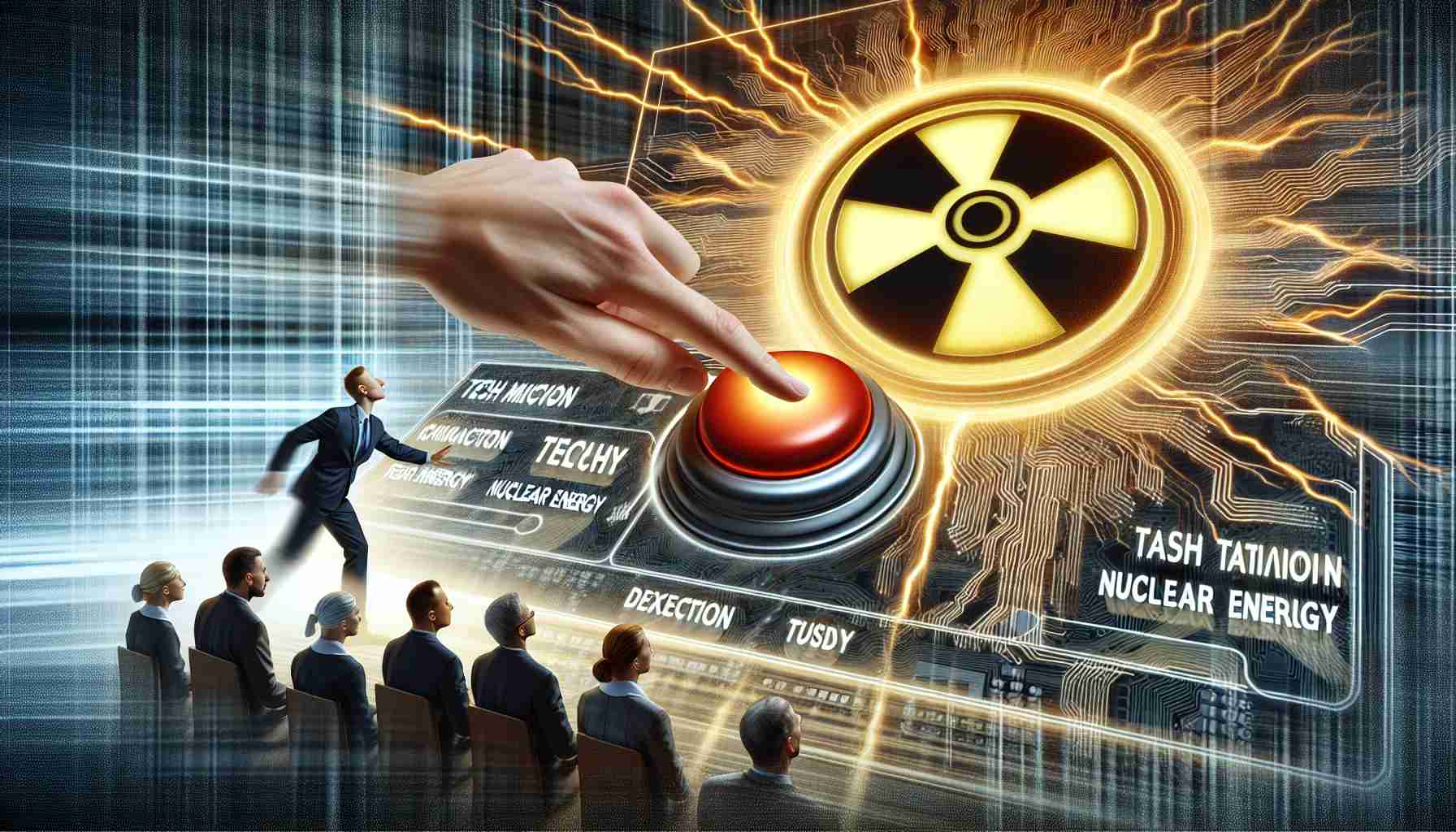Steering the Future of Nuclear Safety
Xiao Chen, a prominent Chinese scientist, has been appointed to lead the International Electrotechnical Commission’s (IEC) technical committee focused on nuclear instrumentation. This vital position empowers her to influence international standards governing nuclear systems, equipment, and safety protocols.
With a vision to enhance the efficacy of standard development, Xiao is committed to exploring innovative methodologies and tools proposed by the IEC. Her leadership aims to foster collaboration and advance the nuclear community through the introduction of new projects.
Following her appointment, Xiao will take over from Gerhard Roos, who has chaired the committee since 2016. Roos is known for his significant contributions to nuclear safety standards.
Xiao Chen graduated from Tsinghua University, specializing in precision instruments, and brings over two decades of expertise in the nuclear field. She is also linked to the Chinese Institute for the Standardisation of the Nuclear Industry and the Standardisation Administration of China. Her past work has encompassed designing crucial protection and control systems, alongside engaging in research for the International Thermonuclear Experimental Reactor, billed as the world’s foremost nuclear fusion experiment.
As Xiao steps into this role, her leadership is expected to herald a new era in nuclear standardization, enhancing both safety and innovation on a global scale.
Steering Nuclear Standards Towards a Safer Future
The appointment of Xiao Chen to lead the International Electrotechnical Commission’s technical committee on nuclear instrumentation is a pivotal moment for the global nuclear industry. This leadership change has broader implications that extend beyond technical standards and into societal trust in nuclear technology. As safety becomes paramount in energy discussions, enhancing nuclear safety standards can serve as a springboard for revitalizing public confidence in nuclear energy—an essential facet of the global transition towards cleaner energy sources.
Xiao’s focus on innovation and collaboration could influence the trajectory of international nuclear safety protocols, potentially catalyzing new projects that address current challenges. Increased international cooperation and standardized practices are crucial for preventing accidents and ensuring the safe operation of nuclear facilities worldwide. A strong framework could also bolster the nuclear sector’s role in the race against climate change by supporting the development of safer, advanced nuclear technologies.
Additionally, the environmental implications of improved nuclear safety cannot be understated. The advancement of nuclear energy, coupled with now more robust safety standards, may provide a sustainable alternative to fossil fuels, significantly reducing greenhouse gas emissions. As nuclear technology evolves, its integration into a diverse energy portfolio could be vital for achieving global carbon neutrality by mid-century.
In conclusion, Xiao Chen’s leadership represents not just a shift in governance but also a potential transformation of the global nuclear landscape, which could align with broader environmental goals and societal needs for safe and reliable energy sources.
Revolutionizing Nuclear Safety: Xiao Chen Takes the Helm
Steering the Future of Nuclear Safety
Xiao Chen, an influential figure in the field of nuclear science, has recently been appointed to lead the International Electrotechnical Commission’s (IEC) technical committee dedicated to nuclear instrumentation. In this pivotal role, she will shape and enhance the international standards that govern nuclear systems, equipment, and safety protocols, thereby impacting nuclear safety worldwide.
# Innovations in Nuclear Standards Development
Under Chen’s leadership, the IEC aims to integrate innovative methodologies and tools into the standard development process. This could include the utilization of advanced technologies, such as artificial intelligence and data analytics, to enhance the accuracy and efficiency of nuclear instrumentation. Emphasizing collaboration, Chen is set to spearhead new projects that engage various stakeholders in the nuclear community, facilitating knowledge exchange and fostering a culture of safety and innovation.
# Transition of Leadership and Legacy
Taking over from Gerhard Roos, who has successfully chaired the committee since 2016, Chen inherits a legacy of significant contributions to nuclear safety standards. Roos’s tenure has been marked by advances that have bolstered the reliability and effectiveness of nuclear safety measures globally. As Chen steps into her new role, she is expected to build upon this foundation, driving forward initiatives that respond to contemporary challenges in nuclear safety.
# Chen’s Background and Expertise
A graduate of Tsinghua University specializing in precision instruments, Xiao Chen brings over 20 years of rich experience in the nuclear industry. Her affiliation with the Chinese Institute for the Standardisation of the Nuclear Industry and the Standardisation Administration of China underscores her deep understanding of regulatory frameworks. Chen’s past contributions include designing essential protection and control systems and conducting research for the International Thermonuclear Experimental Reactor (ITER), which is recognized as the foremost nuclear fusion experiment globally.
# Future Trends in Nuclear Safety
With increasing global attention on sustainable energy sources, the role of nuclear power is becoming more prominent. As countries aim to meet their energy needs while minimizing carbon emissions, innovative nuclear technologies are gaining traction. Chen’s leadership could play a critical role in ensuring these technologies are implemented safely, with robust standards in place to protect human health and the environment.
# Conclusion
Xiao Chen’s appointment is seen as a significant step forward in the evolution of nuclear safety standards. With a focus on innovation, collaboration, and fortified global practices, her leadership is poised to usher in a new era in nuclear standardization, enhancing safety measures and fostering technological advancements on a worldwide scale. As the nuclear energy sector continues to evolve, the impact of such leadership will be vital in navigating future challenges and opportunities.
For more information about advancements in nuclear safety, visit the IEC.
The source of the article is from the blog bitperfect.pe



